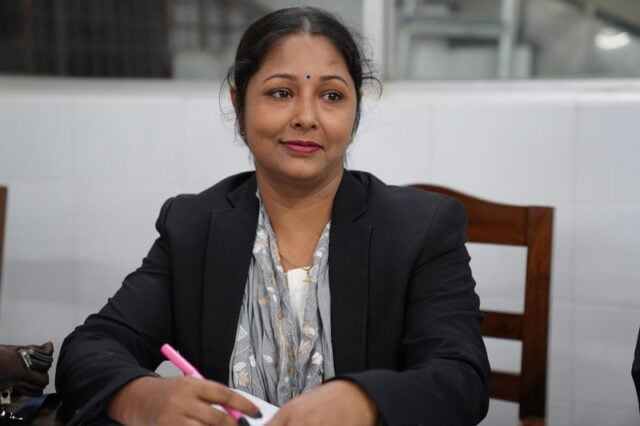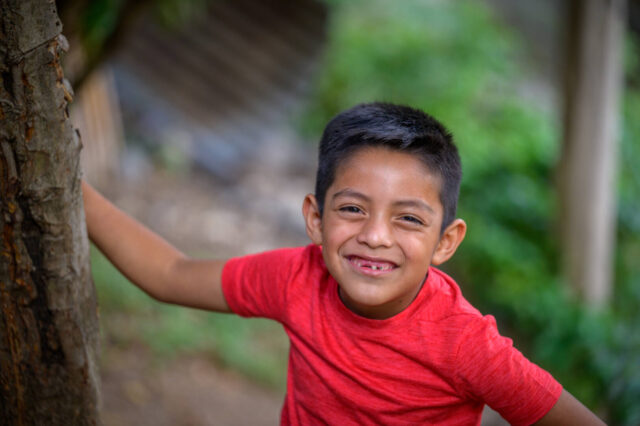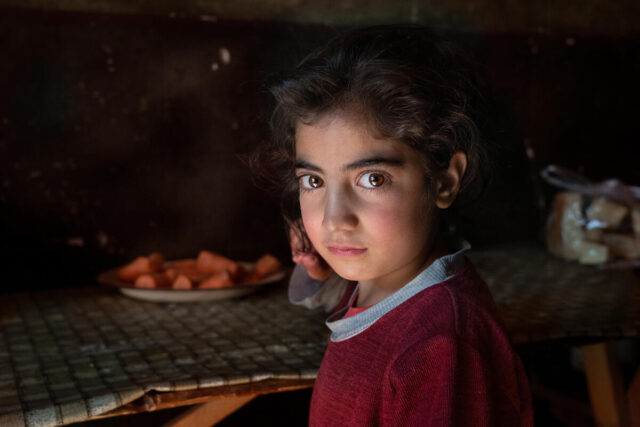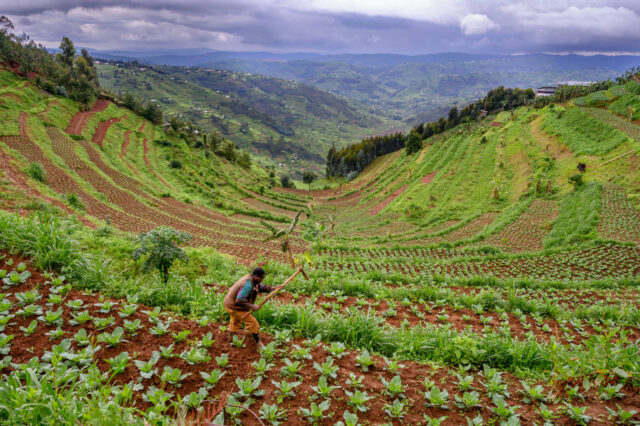They call it La Bestia — “The Beast.” They say it’s a monster that kills, maims, and separates families. “The Beast” rides on rails. It is the network of freight trains that people who migrate from Central America take north through Mexico to reach the United States. They sit back-to-back atop train cars for days. To fall asleep is to risk falling to one’s death.
Why take such a risk? Honduras, the country of origin for many people who migrate, has faced inordinate trials since the late 1990s. Hurricane Mitch left more than 19,000 people dead in Central America. Then-President Carlos Flores said it set Honduras back 50 years. After Hurricane Mitch, the numbers of Hondurans trying to reach the United States swelled, peaking at 523,000 in 2010.
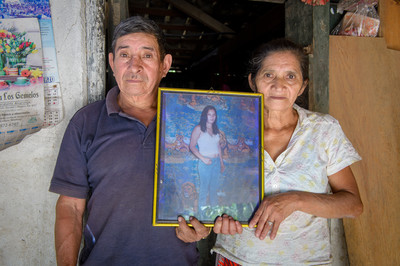
Today, 62% of the population lives below the poverty line. Single parents head most households — grandmothers or mothers, their husbands working, legally or illegally, abroad. Poverty created a breeding ground for drugs, gangs, and crime.
Honduras does not produce cocaine, but it sits along the drug pipeline between South America and the United States. Drug trafficking and gang violence gave San Pedro Sula, the industrial center of northwest Honduras, one of the highest murder rates in the world.
Hondurans fear La Bestia and love their country. That’s why World Vision is there — to give young people a reason to stay, assisted by child sponsorship and innovative economic empowerment and education programs.
Missing Maria
Jose Gustavo Benitez, 66, and his wife, Julia, 62, are defying “The Beast,” working together to create peace and prosperity in their community because of what happened to their daughter, Maria Paula. Eight years ago, when she was only 13, Maria Paula and her boyfriend left for San Pedro Sula looking for work. “She took pills, and they found her dead,” says Jose Gustavo.
Jose Gustavo and Julia live outside Gracias, in western Honduras, in a place where you can hear the wind rustling through the trees. No car noises muffle the sound of nature. Jose Gustavo and Julia care for daughter Anna’s children, while she works nearby as a teacher.
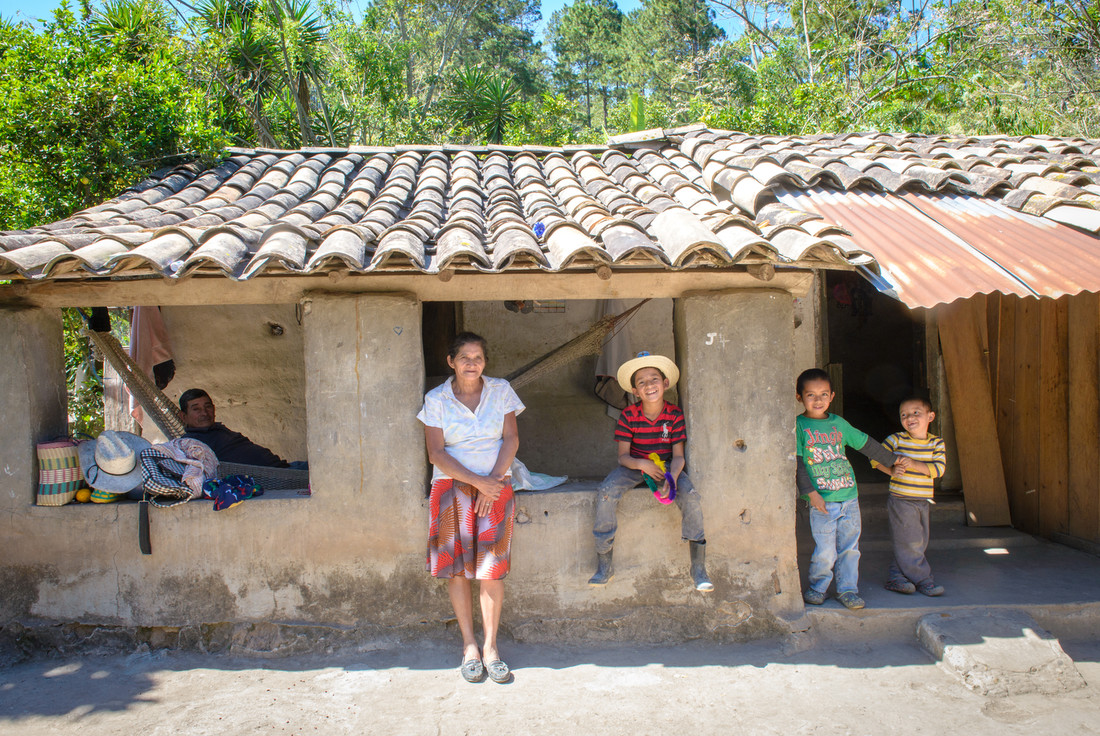
Grandson Edwin, 9, is sponsored. He loves to go to school, and he loves to take his grandpa lunch in the field where Jose Gustavo works. They eat and rest a bit, surrounded by bright red tomatoes, fat watermelons, or shiny green peppers — whatever his grandfather is cultivating that season
“Isn’t everything here?” asks Jose Gustavo. It is: fertile land, passed down to Jose Gustavo from his father; water for irrigation; and a close-knit, 800-member community, 242 of whom are children sponsored by U.S. donors. They live together in peace. The community is crime-free.
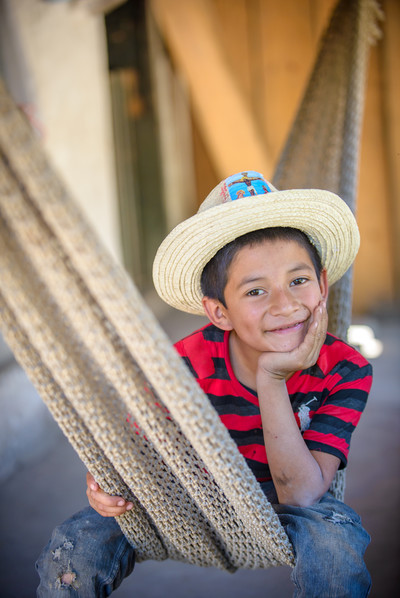
“We are a team,” says Julia of her husband of nearly 40 years. “We have been in this together. It has to be an equal partnership. Between us, we will go until the end.”
Jose Gustavo is part of a 48-member group called Fountain of Life, started with World Vision. The group farms and saves money together. Beginning with nothing, after eight years of hard work, they have amassed $26,000. Members can withdraw money to pay for home improvements, medical needs, or their children’s education.
Around the world, savings groups are banks for the poor. Financial institutions in Honduras may charge up to 75% interest, but savings groups decide their own lower rates — often 20–35%. Members hold one another accountable. World Vision has walked closely alongside the group, building a water system for irrigation, providing seeds and fertilizer, and training the farmers in the latest agricultural techniques and money management.
On March 1, 2016, Fountain of Life embarked on an innovative venture: encouraging the young people of the community to join their group. Every member invited a young person to join them, doubling the size of the group. Jose Gustavo invited his daughter Anna to join. On March 1, 2016, Fountain of Life embarked on an innovative venture: encouraging the young people of the community to join their group. Every member invited a young person to join them, doubling the size of the group. Jose Gustavo invited his daughter Anna to join.
But it’s another daughter who has inspired this vision: Maria Paula, his daughter who died in San Pedro Sula. “She’s one of the reasons I want the youth to be involved in this program,” he says, “people like my daughter, who left for the city and never came back.”
On March 1, 2016, Fountain of Life embarked on an innovative venture: encouraging the young people of the community to join their group. Every member invited a young person to join them, doubling the size of the group. Jose Gustavo invited his daughter Anna to join.
But it’s another daughter who has inspired this vision: Maria Paula, his daughter who died in San Pedro Sula. “She’s one of the reasons I want the youth to be involved in this program,” he says, “people like my daughter, who left for the city and never came back.”
Marvin’s story
Like Maria Paula, Marvin Cortez, 26, considered leaving the community, even riding “The Beast” north, to find opportunity. A picture of strawberries growing in California enticed him — plump, ripe berries, stretching in rows to the horizon. In Central America, people pay “coyotes,” a network of human smugglers, upward of $3,000 to escort them across the border. Some people make it. Many do not.
But Marvin stayed for two reasons. First, he found work alongside Jose Gustavo, cultivating tomatoes, eggplant, peppers, corn, and coffee. Now, armed with the latest farming techniques and a role in the savings group, Marvin earns the income he needs to support his family.
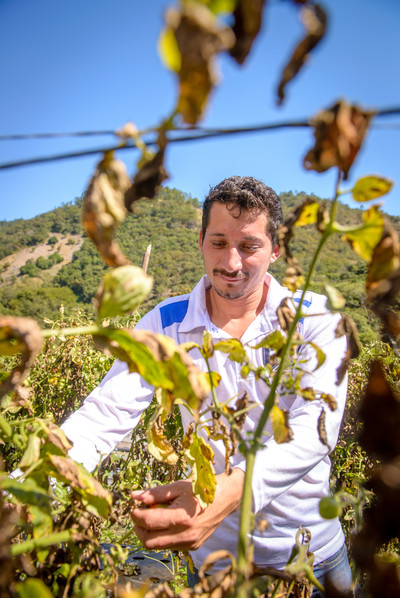
Marvin received a second boost from child sponsors in the U.S. after a major medical setback six years ago. Marvin had nearly lost his daughter, Lesly, to hepatitis when she was a baby. “The doctors told us to wait for a miracle,” he says. “They said only God would save her.” The doctors’ words drove him to his knees on the hospital floor. “I made a pact with God,” he says. “I promised to get married and to serve him.”
Lesly, now 7, survived, and the young father kept his promise. Marvin married Lesly’s mother, Fatima, and they lived with Marvin’s mother, nursing Lesly back to health. But it was a stressful time. “I didn’t have a house. I lived with my mom,” says Marvin. “It is hard on a marriage. You don’t have privacy.”
That’s when Cliff and Myrna, sponsors from Michigan, stepped in to help the family build a house, traveling to Honduras to meet them. Today, the family has a sturdy new home. Marvin has a steady income that allows him to take care of Lesly and his three other children, who love to race around the house, chasing one another and laughing while Fatima watches, smiling. “God opened doors,” he says.
Looking for prosperity
God also opened doors for Janeth Rodriguez Aguilar’s family in nearby Yamaranguila. Three years ago, Janeth’s father, Hector Rodriguez Garcia, 45, joined a savings group called Looking for Prosperity. Life in western Honduras was hard. The family had no income.
“We ate nothing else, only corn,” says Hector’s wife, Nolvia, 35. “I would make tortillas. Sometimes tamales. But we only ate corn.” Janeth and her sister became sick with pneumonia. “I thought they were going to die,” says their mother.
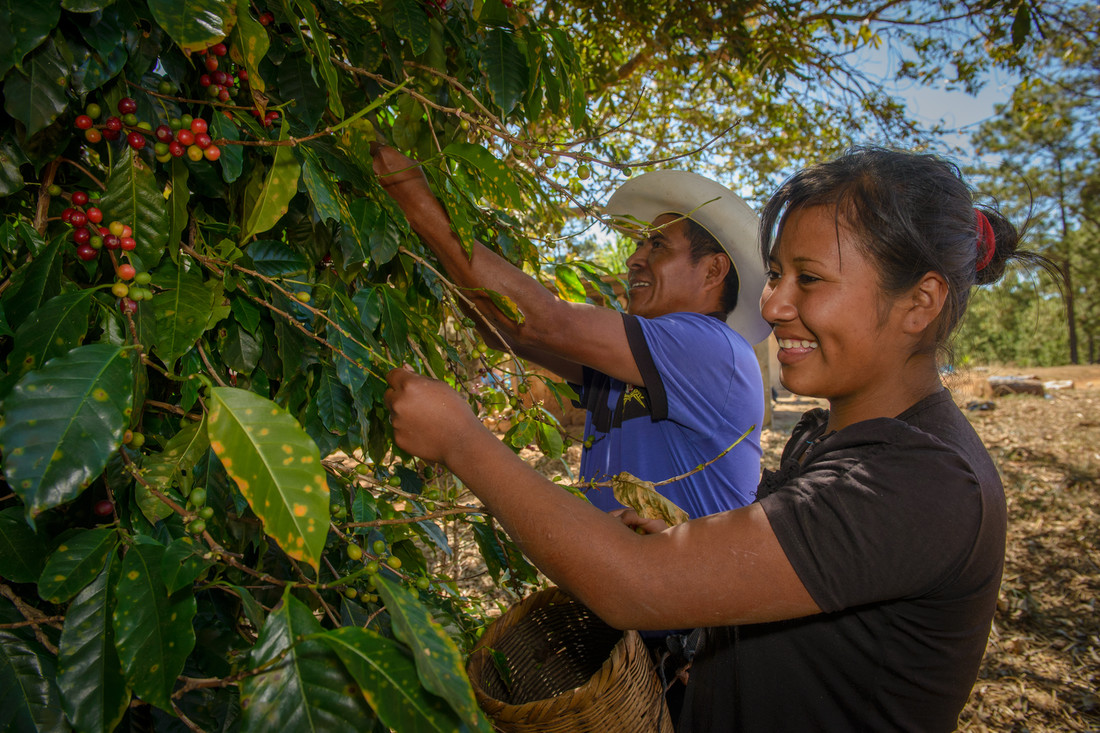
But leaving Honduras to find work was a frightening proposition for Hector. “There are people who go to the United States from here, looking for the American dream,” he says. “They come home without arms or legs.” He explains how a friend fell from the train, losing an arm. Others die from falling between train cars. “I want to change my children’s thinking,” he says. “They will work for the country instead of leaving.”
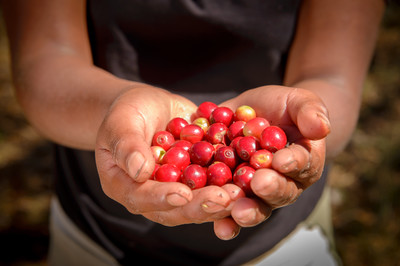
When the Looking for Prosperity group began in 2013, not only did Hector join — so did daughter Janeth. The first year, she took out a joint loan with her dad for $1,000 to plant coffee after school. She was able to pay nearly all of it back herself with Hector’s contribution. The next year, Janeth borrowed $250 all on her own. This time she quadrupled her earnings, making $1,000 from her crop.
Janeth, 16, who has a World Vision sponsor in Puerto Rico, can now fulfill her dream to become a nurse. “I have a great father who supports me,” she says. “Most parents don’t have economic resources to send children to school.”
On a typical day, Janeth attends school and then tends to her coffee plants. Afterward she washes up, splashing her face with clean water provided by World Vision to her home. Then it’s time for homework and fun. “I love to cook,” she says. “Our diet has changed. Now we have chicken and tamales.”
Fourteen girls participate in Looking for Prosperity. They are different from other girls. “There are a lot of pregnant girls and young mothers [in Yamaranguila],” she says. In 2014, of the 190 pregnancies in the area, 170 were girls under the age of 17. None of the girls who belong to the savings group is pregnant. “We are interested in the future,” says Janeth.
Living to love
With World Vision’s support, Gennri Herrera, 39, and his wife, Marisol, 42, are defying “The Beast” in a colossal way in San Marcos, on the western border of Honduras. Gennri (pronounced Henry) and Marisol have four children — three boys and a girl — three of whom have sponsors in the U.S. When World Vision began to promote savings groups in San Marcos, where the family lives, Gennri was interested. In 2004, he became part of a savings group.
God sees our work. God sees our purpose. Putting everything in God’s hands, that is success.—Marisol Herrera
Three years later, Gennri’s savings group bought a coffee-processing machine from Brazil for $25,000. The massive machine sorts, washes, and dries coffee beans. The group, which began with nothing, is now a cooperative with accumulated savings and capital worth $280,000.
Marisol began to volunteer with World Vision. It was an education for her. Gennri and Marisol had only attended school through sixth grade because until recently, that was all that was required. World Vision filled in the rest.
“My [education], my home, is all from World Vision,” she says. She went on to get a degree in business administration. Today, she is Gennri’s business partner.
They invest in their community, especially young people. The couple employ a dozen people and provide 125 farmers with a place to bring their coffee beans to sell. They are community role models, running a 20-member youth group in which they teach business skills. “We believe in youth,” says Gennri. Their children are now in college, except the youngest, who is finishing 10th grade.
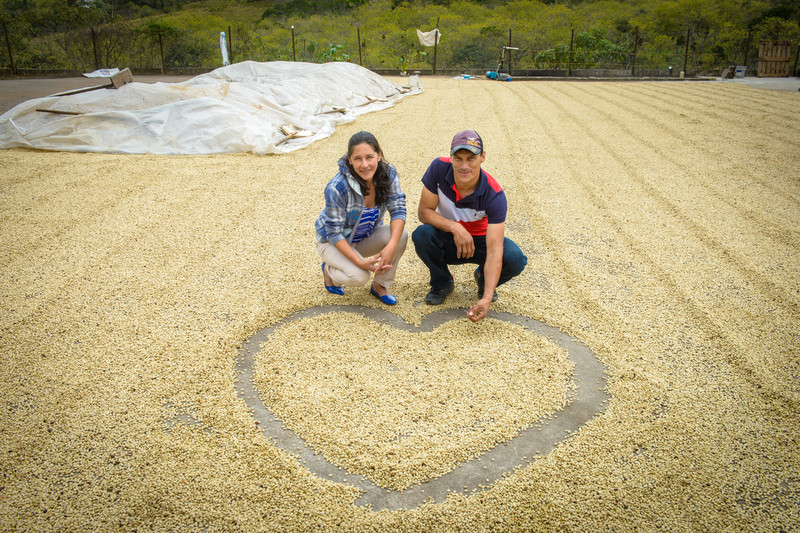
“What we want to do is stop the youth from migrating to the United States,” says Gennri. “I had opportunity. Friends said, ‘I will take you. I will get you a visa.’” Gennri refused. “The only way I will go to the United States,” he says, “is to negotiate for coffee.”
And that could happen. Gennri and Marisol ship beans throughout Honduras and export coffee to Starbucks through a broker. “Our goal,” says Marisol, “is to sell directly to Starbucks.” To achieve the necessary certification, they employ best practices: processing high-quality, organic, chemical-free beans; protecting the environment; and employing workers 18 and older.
“When we do things, and we do everything in this business the right way and honestly, we do it for God,” says Marisol. “God sees our work. God sees our purpose. Putting everything in God’s hands, that is success.”
In God’s hands
Not far away, Jose Gustavo starts each day with prayer, putting his life into God’s hands. Saying goodbye to Julia, he goes to the field — his father’s land. Business people from the city want to buy the land, but he refuses to sell. “I don’t know where that money comes from,” he says. “I want my community to work here.”
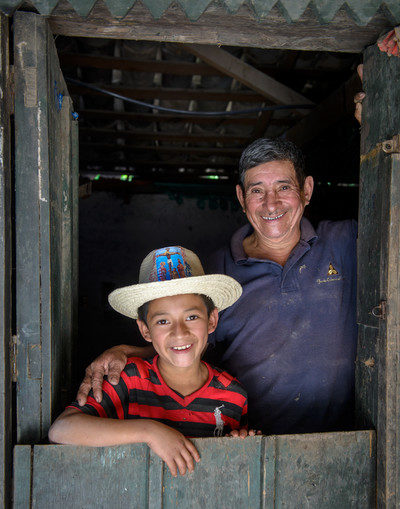
1. Pray for economic empowerment opportunities for families.
2. Ask God to bless the efforts of those working hard to change their communities, like Jose Gustavo and his grandson, Edwin (above).
3. Pray for an end to the violence that engulfs many young Hondurans.
(©2016 World Vision/photo by Laura Reinhardt)
After lunch with grandson Edwin, Jose Gustavo finishes his day. “I take care of my animals, a donkey and a mare,” he says. “I come home, we have dinner, and then I sleep. I don’t waste my time watching TV,” he says. “You’re looking instead of resting.” But before he slumbers, Jose Gustavo thanks God once more.
Jose Gustavo says that he and Julia are working to create a place of peace, where children can grow up away from the dangers of the city. Where they can learn, play, and worship. Where their parents can overcome adversity with opportunity. With Maria Paula in their hearts, Jose Gustavo and Julia are weathering storms, leading by example, and defying “The Beast.”
Technology takes off
Last year, World Vision piloted an innovative project in Honduras’s capital city, Tegucigalpa. Entrepreneurship and Employment with Technology gives children a boost with technology skills and new ways of thinking.
World Vision installed computer labs in schools and equipped 145 teachers to instruct nearly 1,000 students on how to use and repair computers. It was a first for many of the students, who had previously learned about computers just by looking at pictures. Today, students speak with confidence about programs such as Microsoft Excel, Adobe Dreamweaver, and Adobe Photoshop.
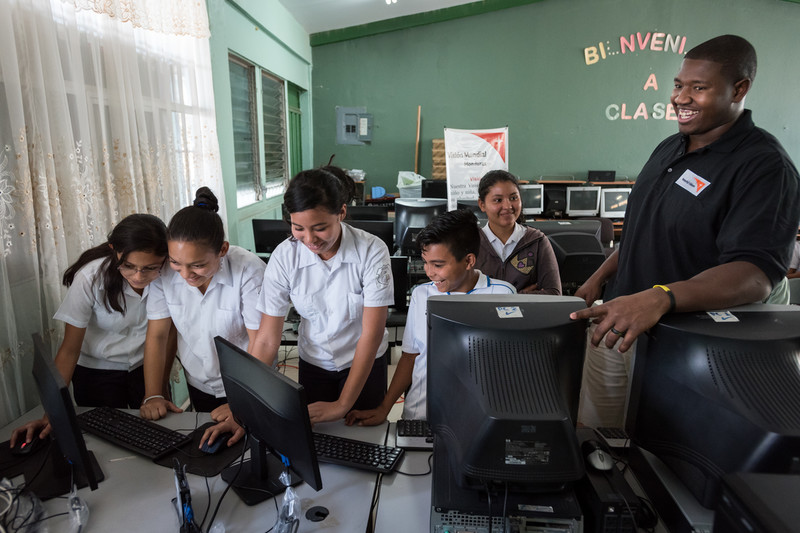
Enil Gomez, 15, a student at Carlos Flores school, says the program changed his life. “I was on the wrong pathway,” he says. “After the courses, I said to myself, ‘I want to change my thinking and help others.’” Enil has become a positive role model for his four younger brothers. He has new dreams. No longer does he want to be a soldier, which he thought was his only option. Now he wants to become a teacher and work with young people.
One reason why: his teacher, Rebecca Sevilla, 54, is so enthusiastic about the project. “She loves to teach a lot,” he says.
“Now I’m a technology teacher,” says Rebecca with pride. Before, she says, she didn’t have the tools she needed to teach technology. “Honduras did not give me the tools. World Vision did. It was like heaven,” she says.
Rebecca teaches students entrepreneurial skills as well to expand their horizons and challenge them to think outside the box. The students started small businesses at school, selling candies and fruit.
“I really learned how a company works,” says Nancy Mungia, 14. “[Before,] I didn’t know how you can invest money and how to speak in public.” The students learned to launch and market products. In the process, they expanded their mindsets.
“I didn’t have a goal,” says Eduardo Meraz, 14, “but now I want to study business administration.” Eduardo hopes to own a car dealership someday, a dream for tomorrow spurred by everything he’s learning today.
Contributor: Johnny Lopez, World Vision staff in Honduras.
